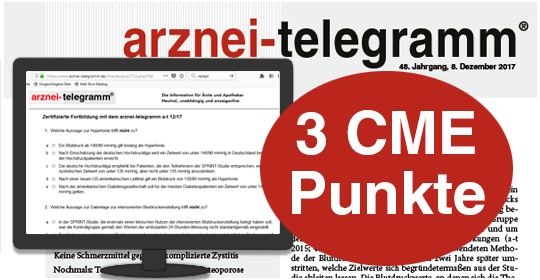Translation of a-t 2024; 55: 6-7
IN BRIEF
Less sugar = fewer non-communicable diseases
In Central Europe, one in four to one in five avoidable premature deaths are due to nutritional factors, among other things highly processed foods that are high in sodium, fat and sugar.1,2 Excessive consumption of high quantities of sugar and the associated significant calorie intake promote weight gain and result in an increased risk of non-communicable diseases such as coronary heart disease, type 2 diabetes and tooth decay and a rise in mortality. Drinks sweetened with sugar (usually high-fructose corn syrup and sucrose; e.g. soft drinks) satisfy the body less than solid foods that contain sugar3 and are a critical starting point for attempts to control the issue at a health policy level.4 The World Health Organization (WHO) relies on fiscal measures to curb the use of unhealthy drinks.5,6 Unlike in many other countries, though, here in Germany we do not have any additional taxation on drinks sweetened with sugar. For the first time, a modelling study is being used to calculate the effect that three different sugar taxes would have on health in Germany - 20% additional tax on drinks sweetened with sugar or additional on fruit juices, some of which contain similar quantities of sugar and calories to soft drinks4 or taxes staggered based on the sugar content, which should induce companies to produce new formulations with less sugar.2 According to the model calculations, the effects are significant - as previously calculated for the USA too, for example7: Depending on the taxation model, 130,000 to 240,000 cases of type 2 diabetes and 40,000 to 70,000 cases of coronary heart disease could be prevented or delayed by 2043, resulting in 110,000 to 190,000 quality-adjusted life years (QALY; see glossary) being gained and 10 to 16 billion euros in costs to society being saved.2 Modelling of this kind that includes the results of demographic surveys, risk factor profiles and epidemiological data on type 2 diabetes, coronary heart disease and stroke does only enable a rough prediction to be made, but a staggered sugar tax appears to decrease diseases secondary to sugar consumption most effectively. The model calculations may even underestimate the actual effects as they only include adults aged between 30 and 90. Adolescents and young adults in particular do tend to favour sweet drinks, though.1 In countries such as Great Britain and Mexico, the frequency of hospital admissions among children for tooth extractions as a result of tooth decay8 and of decayed teeth9 has declined in connection with the introduction of a sugar tax. In Great Britain, leading drinks companies even significantly reduced the sugar content of a number of drinks already when a staggered sugar tax was announced.10* Meanwhile appeals to drinks manufacturers in Germany to reduce the sugar content of soft drinks have fizzled out. We do not feel that switching to sweeteners is a sensible alternative, as there are indications of cardiovascular risks and there is no evidence of a relevant health benefit (a-t 2023; 54: 54-5). The thirst quencher of choice is and remains water, -Ed.
| * | The sugar content of FANTA and SPRITE, for example, differs significantly in Great Britain (10) and Germany: 4.6 g/100 ml and 3.3 g/100 ml respectively compared to 7 g/100 ml for both in Germany. |
| 1 | AFSHIN, A. et al.: Lancet 2019; 393: 1958-72 | |
| 2 | EMMERT-FEES, K.M.F. et al.: PLoS Med. 2023; 20: e1004311 (25 pages) | |
| 3 | PAN, A., HU, F.B.: Curr. Opin. Clin. Nutr. Metab. Care 2011; 14: 385-90 | |
| 4 | MALIK, V.S., HU, F.B.: Nat. Rev. Endocrinol. 2022; 18: 205-18 | |
| 5 | WHO: Fiscal policies for diet and prevention of noncommunicable diseases. Techn. Meet. Rep. 5-6 May 2015; https://a-turl.de/dern | |
| 6 | WHO: Global report on the use of sugar-sweetened beverage taxes, Dec. 2023; https://a-turl.de/uu4e | |
| 7 | LEE, Y. et al.: Ciculation 2020; 142: 523-34 | |
| 8 | ROGERS, N.T. et al.: BMJ Nutrition 2023; 0: e000714 | |
| 9 | HERNANDEZ-F, M. et al.: Caries Res. 2021; 55: 183-92 | |
| 10 | foodwatch: Britische Hersteller-Abgabe auf Zuckergetränke wirkt, 27 March 2018; https://a-turl.de/wt8h |
© arznei-telegramm (Berlin/Germany), January 2024, protected by copyright laws.
Autor: Redaktion arznei-telegramm - Wer wir sind und wie wir arbeiten
Diese Publikation ist urheberrechtlich geschützt. Vervielfältigung sowie Einspeicherung und Verarbeitung in elektronischen Systemen ist nur mit Genehmigung des arznei-telegramm® gestattet.
